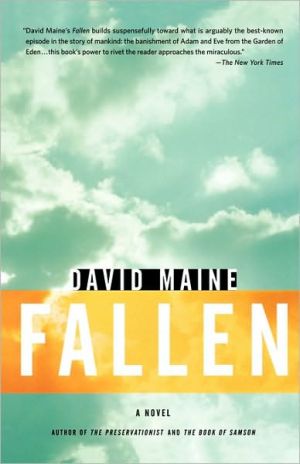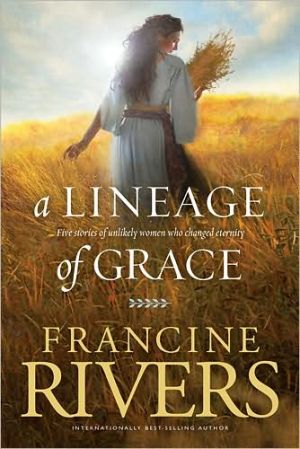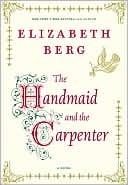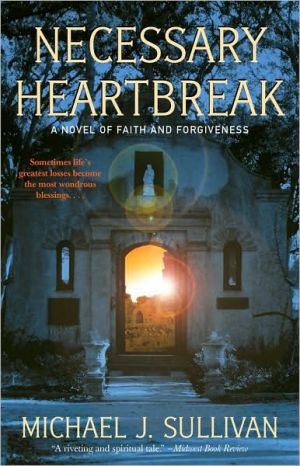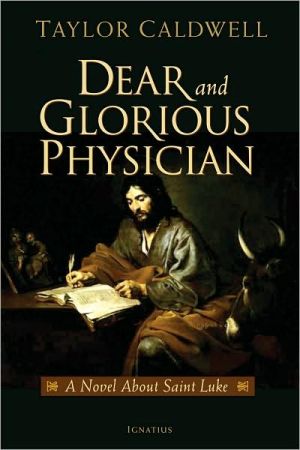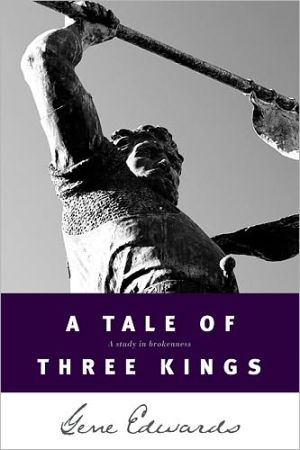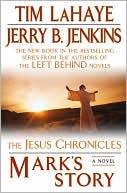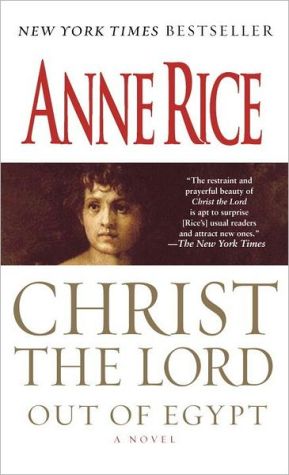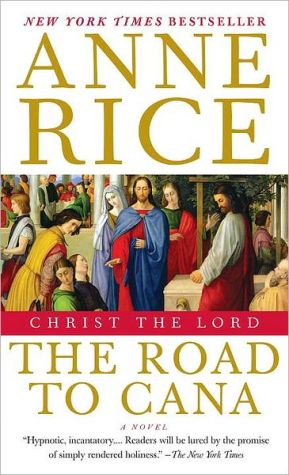Fallen
From the internationally acclaimed author of The Preservationist comes a provocative retelling of the story of Eve and Adam, Abel and Cain -- a novel of temptation and murder, exile and loss. \ Once expelled from the Garden, Eve and Adam have to find their way past recriminations and bitterness to construct a new life together in a harsh land. But the challenges are many for the world's first family. Among their children are Cain and Abel, and soon the adults must discover how to be parents...
Search in google:
Once expelled from the Garden, Adam and Eve had to find their way past recriminations and bitterness to build a new life in a harsh land.The Washington Post - Ron CharlesThe book's best moments take place in the middle, when the family is at its fullest. Maine is enormously talented at extrapolating rich characters from a few brief verses in the Scriptures. In his telling, the first family is comically (and tragically) typical.
Chapter One\ 40 the old man\ The mark burns upon him all the time now. Its hurt is open and shameful like a scab picked until it bleeds. In years past he could find ways to forget it or at least misplace his awareness for a while; it was never easy but he managed. These days he cannot. There is nothing to fill Cain's time so the mark does this for him.\ It stains his flesh like a parasite.\ Countless people have witnessed it over the years, but even those who have not don't lack for an opinion. Some say it is a letter—the first letter of his name, reversed to show God's displeasure. Others say it carries the shape of a stillborn child, or a wolf's skull, or a coiled serpent. Still others, less fanciful perhaps or just duller, claim it is no picture at all. Merely a smear unreadable, the Devil's thumbprint or God's. What does the shape matter? The point is, it is there, plainly visible, crying out to be seen.\ But the miracle lies in the seeing. For all those who look upon the mark see it differently. Like the Tower of Babel reflected mirrorwise, everyone who lays eyes upon Cain's face beholds something different from all the others, sees the message spelled in a different tongue, though the message is always the same.\ And what message is thus conveyed? A simple one: Don't touch. Stay away. Leave this one alone.\ The others in this house, Cain's in-laws and grandchildren, heed this advice and give him a wide berth. Only his son remains stubbornly loyal. And recently, his dead brother as well.\ But now Cain is convinced that Abel has left him forever: tonight's visit was his last. So with nothing more to do, he waits to die. He is not being dramatic. Among his many faults, this is not one. He expects to be dead by morning.\ The old man shifts and wheezes. The wet climate he finds himself banished to torments his breathing. Deserts are tough but at least the air is clean. Not that he expects sympathy: impetuous he may be, hot-tempered and violent, resentful and self-pitying, any number of undesirable qualities. But he has never been stupid.\ So then. He shifts his weight in the crepuscular gloom of the hut and allows his gaze to drift past the low open entryway, outside to where the fading crimson sky has clotted into dusk. From outside float children's laughter and the calmer voice of his son. Cain knows he is not welcome out there. Nor unwelcome exactly; but if he ventured from his hut the voices would quickly fade, glances would be cast down, the children would drift off, and the women's mouths would tighten.\ No. He will stay inside this night. At least it will be his last such.\ Cain settles onto the earth, arms folded behind his head. A sigh ripples through his nose and musses the yellowing whiskers of his beard. So the matter of his mortality has been decided. In a strange way a burden has been lifted. If he were carefree he might start whistling, but he is not. He is a man who dwells upon serious thoughts. As a boy he dwelt upon serious thoughts. As a fetus in his mother's womb he was prone, quite likely, to serious ruminations, while his lighthearted brother simply enjoyed spinning and kicking in the watery gloom. People change in some ways as they grow; in other ways they don't.\ Maybe that's the nub of it, he thinks. Maybe that's where all the problems started between himself and his brother—himself and his mother—himself and his father. With two unborn souls, spinning or brooding in the watery wet, waiting for the unforgiving light of their first morning.\ There is something in that, some truth waiting to be grasped like a teat in an infant's hand. But like that teat, the truth is too large and unwieldy for the old man's grip, and when he clutches at it, it bounces to one side, slipping heavily from his fingers. And whatever lies beyond Cain's vague sense of disquiet slips away as well.\ He is old and gets distracted easily. When the idea is gone he doesn't bother to follow it, and soon forgets it altogether.\ This evening Cain appears calm but he his not. His terror is that of a tiny boy dropped from a great height during a thunderstorm while vultures pluck his flesh. His stomach feels slightly out of kilter, down where his intestines should be. This makes his midriff hurt. It makes his back and his loins and his molars hurt. Was this how his brother felt as the life hurtled from his body, or did he feel something else entirely? Rage for example or bewilderment, or perhaps an overwhelming grief that blotted out all else with enormous reptilian wings?\ Cain tucks his chin against his clavicle, shuts his eyes tight, and tries to keep the world at bay. Outside, his grandson Irad cackles as the children play some game involving rocks and noise. He is, he thinks, almost ready to leave this place behind forever. Almost eager, in fact.\ Almost.\ So behold him there: Cain lying alone in the hut, thinking back on his life, tallying it up. Waiting to die.\ Copyright © 2005 by David Maine
Book 1The Murder40The Old Man339The Brother638The Son1037Thirty Years Previous1736The Mistake2335The Proposal2834The Strangers3633The Years Previous4732The Conversation5331The Murder60Book 2The Brother30The Murder6329The Girl7228Some Weeks Previous7527The Old Man8326The Stranger8925The Conversations9424The Previous Two Years10123The Judgment10722The Offering11321The Proposal121Book 3The Family20The Proposal12519The Previous Winter13018The Mistake13717The Abomination14316The Conversation14715Two Summers Previous15614The Years16013The Second Son16712The Previous Murder17111The Arrival182Book 4The Fall10The Arrival1859The Son1918Two Years Previous1977The Gifts2066The Years2115The Previous Spring2164The Murder2203The Conversation2262That First Morning2331The Old Man244
\ Janet MaslinFallen - an instantly disarming book, thanks to the image of squabbling cherubs on its cover - is a risky, original undertaking. It is not one of those parasitical fables that siphon all their inspiration from borrowed material. Mr. Maine uses 40 chapters (a number with much biblical resonance, starting with Noah and the flood) to reconstruct the early Book of Genesis in reverse, as a way of amplifying hindsight and regret.\ — The New York Times\ \ \ \ \ Ron CharlesThe book's best moments take place in the middle, when the family is at its fullest. Maine is enormously talented at extrapolating rich characters from a few brief verses in the Scriptures. In his telling, the first family is comically (and tragically) typical.\ — The Washington Post\ \ \ Publishers WeeklyMaine tackles biblical narrative once again in his inventive second novel (after 2004's The Preservationist, which starred Noah and his large brood), a spirited retelling of the creation yarn and the conflict between Cain and Abel. The novel opens with Cain as a "jumpy, scared old man," marked for life and wandering the desert in exile for killing Abel. Flashing back years, Maine fills in the story: Cain's "smoldering challenge[s]" to Adam's authority; his scorn for Abel's innocence; his lust and greed and anger. (Eve was convinced that Cain, in utero, killed a twin brother.) Maine's equally compelling retelling of the creation myth explores, among other things, the dynamic between the world's first husband and wife as it evolved, bumpily and confusingly, after they were banished from the Garden of Eden. What makes this intelligent, funny, meaty and moving novel so fascinating is the ease with which Maine inserts a modern sensibility and keen psychological analysis even as he jumps back and forth between the timelines of the two narratives and remains faithful to their biblical roots. Agent, Scott Hoffman. (Sept.) Copyright 2005 Reed Business Information.\ \ \ \ \ School Library JournalAdult/High School-Maine uses the story of Adam and Eve and the subsequent fatal conflict between their two sons as the basis for this meaty, lusty tale. Fallen opens with an introspective Cain in his later years and works backward from there to Adam and Eve's expulsion from the Garden. The novel is divided into four sections. The first centers on the Cain of the present: shunned by society after murdering his brother, he is a surly, reclusive man whose one joy in life is his son Enoch (or Henoch in the story). The second series of chapters relates Cain's and Abel's growing up years and the events that lead to Cain's decision. The focus then shifts to Adam and Eve and the years they spend raising their family. Finally, readers are taken back to the events leading up to the Fall and the period that immediately follows their expulsion. The portrayals are vibrant and three-dimensional; there is a raw energy to Adam and Eve, especially, that makes them almost leap off the page. Cain's simmering resentment is disturbingly appealing, and the reverse chronology is a masterful stroke that emphasizes the stark power of regret. The language throughout the book is spare and beautiful, and the author weaves his story with such finesse that readers are left thinking, "Well, of course it happened that way!" Fallen breathes new life into one of humanity's oldest stories.-Kim Dare, Fairfax County Public Library System, VA Copyright 2005 Reed Business Information.\ \ \ \ \ Kirkus ReviewsA thought-provoking account of man's fall from grace. In illuminating the story of Genesis (his 2004 novel ,The Preservationist, concerned Noah and the Ark), Maine re-imagines the first family, from Adam and Eve's expulsion to the murder of Abel, offering an intimate portrait of a damaged, all-too-human clan. Told in reverse chronology, beginning with the death of Cain, the novel inches backward, each movement unveiling those wounding moments and fatal flaws that can lead to disobedience and murder. As the world's first murderer, Cain spends years wandering, shunned and stoned, bearing the mark of his crime and also protected by it, until he finds a wife and has a son, and then, ironically, becomes the first architect and builder of a great city. As a young man, Cain is clever and moody, a diligent worker, but also dangerously questioning, and as with all natural rebels, a thorn in the side of authority. So unlike mild-mannered Abel, full of mediocre advice and mindless acquiescence (even Adam sees Cain as the more noteworthy man), Cain seems predestined to murder (Eve expects no less from her child, whom she suspects killed his twin in utero). Though the tragedy of the two brothers, and the repercussions in a world in which murder can now exist (Cain disturbingly happens upon a young boy who has followed his murderous example) is good drama, the story's winning moments are in examining the novelty of being the first of your kind, of having to literally discover everything in the world. Eve copies a spider's web for a fishing net, and Adam brings home fire from a lightning strike-and both are tormented that any of this has to be invented at all, because life was perfect in the Garden. Atonce witty and poignant, Maine captures the frail humanity of the world's first family.\ \ \ \ \ From the Publisher"Author David Maine brings motive and inner dialogue to the story, and narrator Simon Vance brings those elements alive, from Cain's rage at the God who cast his parents from Eden and his regret at his murder of Abel, to Eve's fears during the first childbirth and Abel's and Adam's faithful love of God."—-AudioFile\ \
